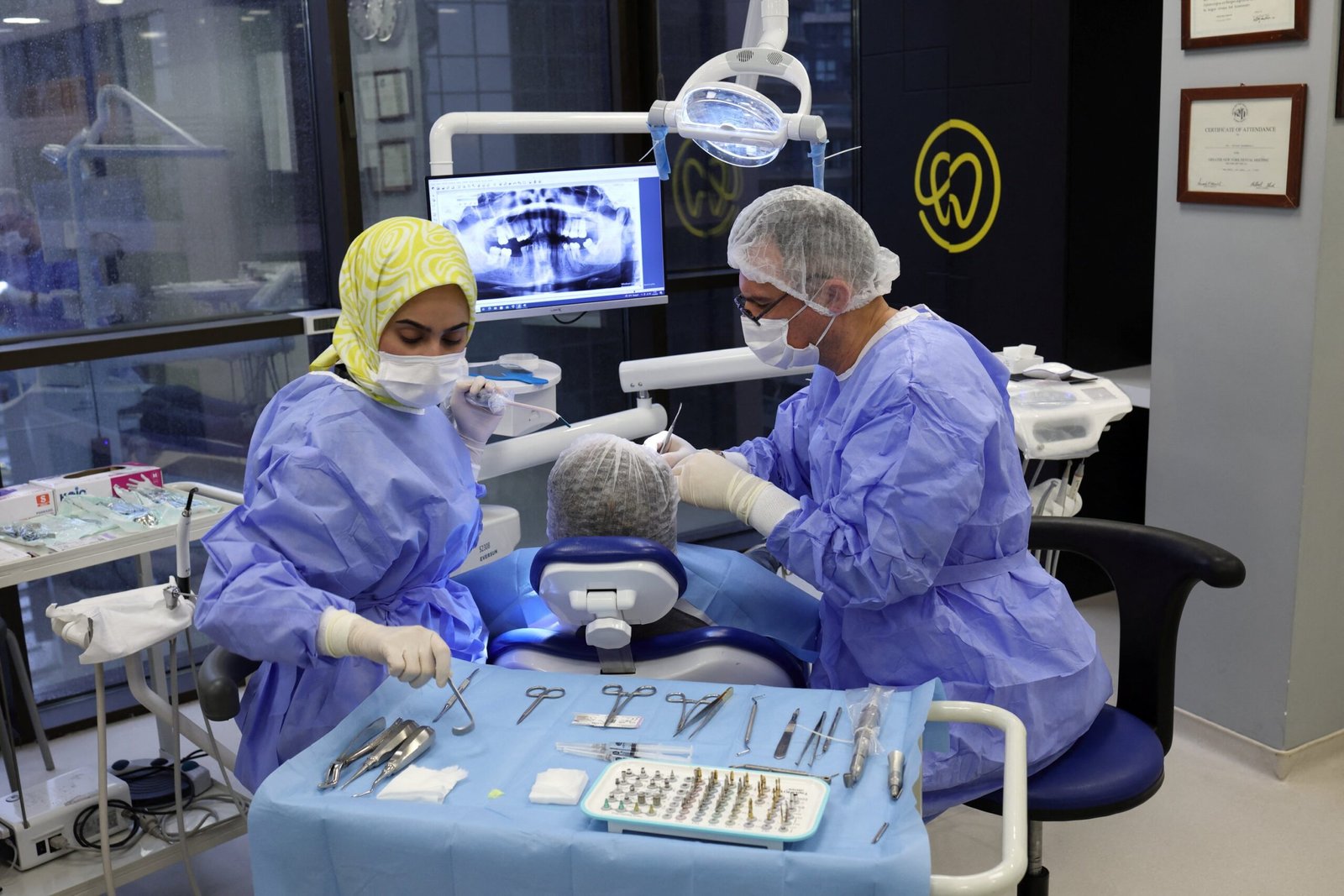The United Kingdom is witnessing a surge in dental tourism as British citizens seek dental treatment abroad due to a shortage of dentists and high costs within the country. Faced with difficulties accessing low-cost dentistry in the National Health Service (NHS) and prohibitive private dentistry expenses, a growing number of Britons are traveling abroad for basic dental procedures.
Key Points:
- Dental Crisis in the UK:
- Britain faces a shortage of dentists, ranking third from the bottom among OECD nations for dental access.
- Issues with the NHS funding system compound the problem, leaving millions unable to access affordable dental care.
- Rise in Dental Tourism:
- Dental tourism from the UK is reportedly at record highs or experiencing rapid growth for various companies operating in countries such as Turkey, Hungary, and Romania.
- A weak Turkish lira contributes to the appeal of dental treatments in Turkey.
- Individual Experiences:
- Marion Parks, a British citizen, highlights the struggle to access dental care in the UK and chose to travel to Istanbul for implants, paying significantly less than quoted by a private British clinic.
- Parks’s experience is reflective of a trend where individuals, faced with NHS limitations and high private costs, opt for overseas dental treatments.
- Increasing Demand for Dental Tourism:
- Dental clinics in Turkey, including the Tower Dental clinic in Istanbul, report a substantial increase in British patients seeking treatment abroad.
- Companies facilitating dental tourism experience a surge in inquiries and bookings from UK residents, indicating a growing demand for overseas dental services.
- Root Causes of Dental Crisis:
- The British Dental Association attributes the dental crisis to the 2006 dental contract, stating it is no longer fit for purpose.
- The payment structure fails to differentiate between the complexity of treatments, leading to financial challenges for dental practices.
- Government Response:
- Calls for reforming the dental contract have been made by industry bodies and parliamentary committees.
- The UK government, while acknowledging progress, faces criticism for not implementing sufficient measures to address the shortage and improve access to NHS dentistry.
- Financial Disparities:
- Vedat Etemoglu, a clinic manager, emphasizes the significant cost difference between Turkish and UK dentistry bills.
- Patients like Marion Parks find that implants, usually available privately at high costs in the UK, become more accessible and affordable abroad.
- Impacts on General Dentistry:
- Observations suggest that individuals are not only traveling abroad for cosmetic dental work but are increasingly seeking general dentistry treatments overseas.
- The closure of UK clinics during COVID lockdowns created a backlog, contributing to the surge in dental tourism.
Conclusion: As British citizens grapple with challenges in accessing affordable and timely dental care domestically, the trend of dental tourism is on the rise. The financial disparities, coupled with systemic issues in the UK’s dental contract, are prompting individuals to explore treatment options abroad, marking a significant shift in the landscape of dental healthcare for UK residents.



